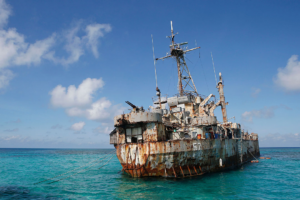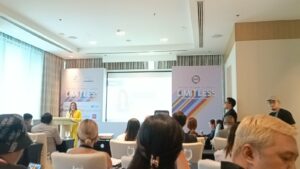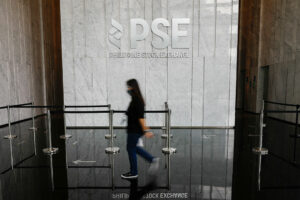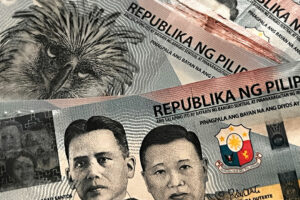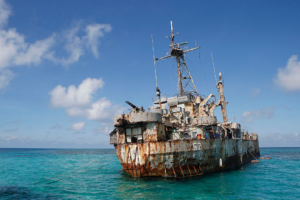By John Victor D. Ordoñez, Reporter
THE PHILIPPINES should hold more dialogues with the Association of Southeast Asian Nations (ASEAN) on its sea dispute with China, according to the Senate president, who said diplomacy is still Manila’s best option to ease tensions.
“Our Department of Foreign Affairs (DFA) should try to bring this issue to the ASEAN, which the Philippines is a part of,” Senate President Francis “Chiz” G. Escudero told reporters in Filipino on Wednesday.
Suing China before the Permanent Court of Arbitration in the Hague is always an option, he added.
“ASEAN is not known to be a political association, but this is still a forum to discuss whatever is happening in this part of the region,” Mr. Escudero said.
Tensions between the Philippines and China have worsened in the past year as Beijing continues to block resupply missions to Second Thomas Shoal, where Manila grounded a World War II-era ship in 1999 to assert its sovereignty.
China has issued a policy allowing its coast guard to detain people it deems trespassers in disputed areas.
Senators on Tuesday criticized China’s coast guard for seizing and dumping food and other supplies meant for a handful of Filipino soldiers at Second Thomas Shoal on May 19.
More than $3 trillion worth of trade passes yearly through the sea, which China claims almost in its entirety. A United Nations-backed tribunal in 2016 voided its claim for being illegal.
“I hope our country won’t hit back,” Mr. Escudero said. “No one wants any kind of war to break out in our region, especially if the battleground is our country.”
China’s new policy, which the Philippine Coast Guard said is illegal, allows its coast guard to detain foreigners it suspects of violating its exit-entry rules including in disputed areas of the South China Sea for up to 60 days without a trial.
Foreign vessels may be seized, and foreigners detained if they are accused of illegal entry and exit, of helping others “to illegally enter and exit the country,” and of “endangering national security and interests.”
“China is trying to flex its muscles in that area and uplift and alleviate its status economically as a major superpower,” Senate Majority Leader Francis N. Tolentino said in a statement.
“We now see an… increase in the horizontal gray zone tactics being used by China. I think the DFA should now focus not just on mere diplomatic protests but possible violations of international humanitarian laws,” he added.
China’s Foreign Ministry on Monday said the United States has played an “extremely dishonorable role” in backing Manila and using the South China Sea dispute to provoke relations between China and the region.
Beijing is willing to continue working with members of ASEAN including the Philippines to manage differences at sea and deepen sea-related cooperation, the agency said.
Philippine President Ferdinand R. Marcos, Jr. last week delivered a keynote address at a security forum in Singapore, criticizing what he described as illegal, coercive and aggressive actions by “other actors” in the South China Sea — a censure of China, although he didn’t name the country.
At the end of last year, ASEAN foreign ministers issued a statement saying they were closely following recent tensions in the South China Sea and countries with claims over the waterway, vowing to push for peaceful solutions to the disputes.
In his visit to Manila in April, Singapore Foreign Minister Vivian Balakrishnan said Singapore and the Philippines would push for a code of conduct in the South China Sea to ease Chinese aggression in the waterway.
Indonesian Minister of Foreign Affairs Retno L.P. Marsudi has said the Philippines and Indonesia have agreed to work together in crafting a code of conduct.
The ASEAN and China have been in talks as far back as 2002 to craft the code, with both sides seeking to fast-track the measure.
In November, Mr. Marcos said he had approached Malaysia and Vietnam to discuss crafting a code of conduct, citing limited progress in striking a broader regional pact with Beijing.
“Imminent war is another matter if that happens in our own land,” Mr. Escudero said. “I hope this heat will subside and the dialogue will still go through.”

